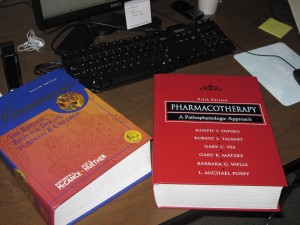I have already written blog posts about two big “Aha” moments: 1- realizing on July 4 that I can overcome my fear of technology, 2 – the feeling that this might be what my ELL students feel like while reading nursing textbooks with vocabulary that was way over my head. So now I will write about a slowly building “Aha” that didn’t take place in a single moment.
This 3rd “Aha” includes the realization that people in my area have worse health problems than I thought, that a lot of these problems are linked to diet (diabetes, obesity including morbid obesity, severe pediatric tooth decay, heart disease, kidney failure, etc.), that a lot of these health problems are preventable (or can be managed in a way that reduces the impact), that there are barriers that may not be immediately obvious that prevent people from eating healthier and avoiding damage to their health and premature death (poverty, the high price of foods like fruit and low price of unhealthy foods, the distance to grocery stores in rural areas and high cost of gas, the lack of access to locally grown food in a heavily agricultural area that ships so much of the food out of the area, lack of access to regular medical care through a primary care physician due to lack of health insurance so people avoid going to the doctor or mainly go to the ER, and lack of knowledge about diet and health or not realizing how serious the consequences of poor diet may be), that the cost of all these preventable heath problems have a huge impact on the country’s health care system and its future capabilities.
I am still waiting to have an “Aha” moment about the solutions to these problems. I don’t really know what to think about a lot of the issues, like “To what extent should insurance companies cover medical expenses for problems brought on by people’s choices?”. I asked my mentor if a disease like diabetes or obesity is linked to genetics, a faulty metabolism, or barriers like poverty, does that mean the person just can’t help it? She said something to the effect that although all those factors are involved, we don’t help anyone by promoting the idea that they have no control over it and no responsibility. I think she said that since it’s an INTERACTION of genetics and environment the disease state won’t manifest itself or won’t be as severe if the person eats a healthy diet, exercises, and/or takes their medicine. She said patients have to let go of the notion, “It’s not fair.” She said, “There is no fair. You take the cards you’re dealt and do everything in your power to make the best of the situation. You eat right. You exercise. And you take your medicine.” I’m still trying to figure out how we can make that more doable for people with economic barriers. I want to talk with my students about these types of issues and I hope I can figure out how to get them to have productive and respectful discussions in which nobody feels disrespected, blamed, misunderstood, or ignored. It would be so wonderful if my students could come up with even small solutions to even parts of the problems that present barriers to good health in our county. If any of you have any thoughts on this, please share them with me.
